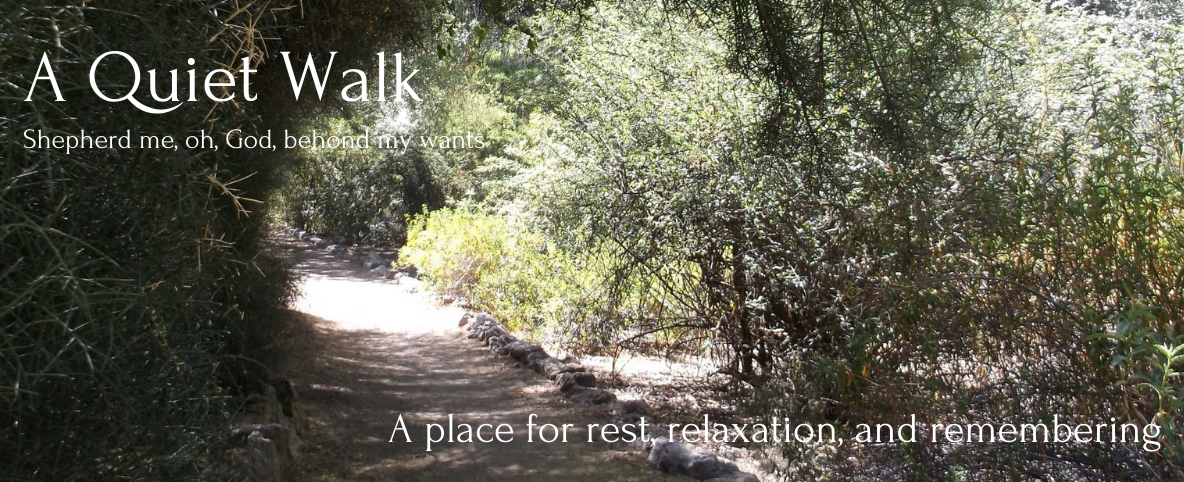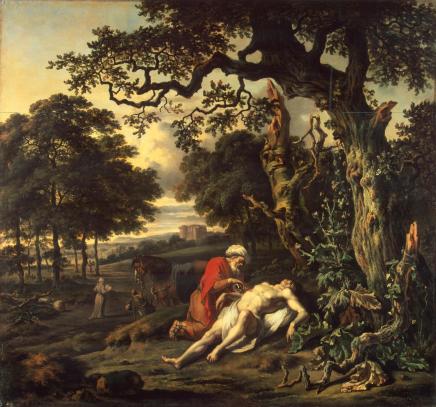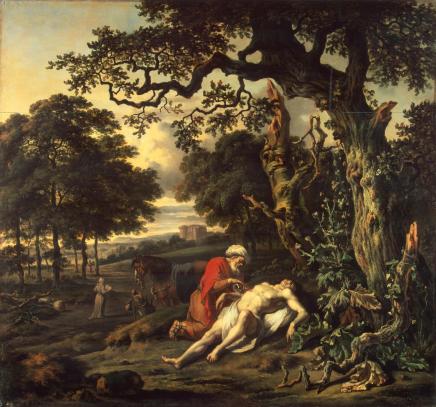13 If I speak in the tongues of mortals and of angels, but do not have love, I am a noisy gong or a clanging cymbal. 2 And if I have prophetic powers, and understand all mysteries and all knowledge, and if I have all faith, so as to remove mountains, but do not have love, I am nothing. 3 If I give away all my possessions, and if I hand over my body so that I may boast, but do not have love, I gain nothing.
4 Love is patient; love is kind; love is not envious or boastful or arrogant 5 or rude. It does not insist on its own way; it is not irritable or resentful; 6 it does not rejoice in wrong doing but rejoices in the truth. 7 It bears all things, believes all things, hopes all things, endures all things.
8 Love never ends. But as for prophecies, they will come to an end; as for tongues, they will cease; as for knowledge, it will come to an end. 9 For we know only in part, and we prophesy only in part; 10 but when the complete comes, the partial will come to an end. 11 When I was a child, I spoke like a child, I thought like a child, I reasoned like a child; when I became an adult, I put an end to childish ways. 12 For now we see in a mirror, dimly, but then we will see face to face. Now I know only in part; then I will know fully, even as I have been fully known. 13 And now faith, hope, and love abide, these three; and the greatest of these is love.
Meditation:
This passage from 1 Corinthians is probably one of the most well-known writings of Paul, yet no one understands or follows the simple mandate, love each other. Love, everyone knows what it is, everyone wants it, and it is probably the most hoarded grace of all time. Oscar Hammerstein II, wrote:
“A bell’s not a bell ’til you ring it –
A song’s not a song ’til you sing it –
Love in your heart wasn’t put there to stay –
Love isn’t love ’til you give it away!”
Love isn’t something you say, it’s something you do, you must express love in some way for it to have any meaning. To give it away is to hold someone when they hurt, offer the essentials of survival to those in desperate need, or sit and listen when no one will, that is love.
It sounds so simple and it is so hard to do. We humans just can’t get the idea of love right. The author of 1st Peter said: “Above all, maintain constant love for one another, for love covers a multitude of sins.” (4:8) Or, if you love enough you will let the irritations of life go. Unfortunately letting go is the farthest from many of our minds or behavior. God loved the Hebrews and as a result forgave them their sins repeatedly, and then he sent prophet after prophet to remind them of that love. God sent Jesus to tell the gentiles (that’s you and me) divine love was there for the asking. Trouble is we don’t ask, and we don’t give, we hoard.
All too often our lives are filled with the endings of love and compassion what we need are the beginnings, the constant expression of love, our eyes are dimmed to the graciousness that surrounds us and all creation. Love comes in many forms and, sadly, the only way we observe it is when we are hit over the head with compassion, kindness, and mercy. Yes I know there are those who say the word love and believe it’s good enough or they believe love only applies to those who think like they do, but saying is not enough, loving only those who love you is not enough. You must put love into action and when love is freely given away to all, it multiplies hundreds, thousands of times over and over.
Today our government promotes hate, greed, and racism as part of the evangelical cult that’s taken over our politicians’ lives. Love has no place in their world view, they love only those who see the world in their own twisted way. We see the result of their twisted understanding of love every time a person of color is killed, a law officer is killed, hate groups such as Nazis are allowed, encouraged, to harass and hurt people different from them. We see the hording of love every time we see injustice and when we keep silent and do nothing we become part of that cult of hatred and hoarding.
If we are to be faithful to Paul’s words and the teachings of each prophet God has sent, then we must put ourselves between those who do not show or share love with those in need. When we do not act we are just as guilty of hording love, compassion, justice, mercy and peace. It is our responsibility, our ministry, our job to act and pass the grace of love on multiplying it into infinity.
Ruth Jewell, ©August 3, 2018










